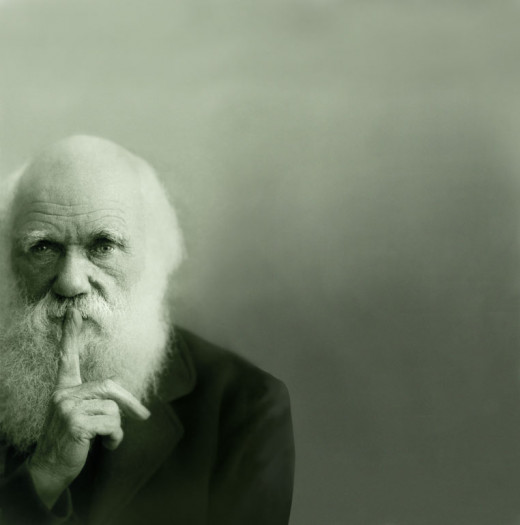Free Will vs. Determinism: A Rinkside Discussion
Philosophy on Ice
In an act of God, four men received free tickets to a professional hockey contest.
The first period ended and each man had grown increasingly concerned with their surroundings, indifferent towards the game itself.
Yearning for more cotton candy, the group rose up, got more cotton candy, and proceeded to walk and converse for the duration of the intermission.

The Culpability of a Drunken Man
One of the gentlemen wore a fine wool suit and matching hat, coinciding with circular, tortoise-shelled eyeglasses. Another man fashioned a shaved head, wearing an orange cloak. The third gentleman had a black trench coat on with a "God is dead" t-shirt underneath it, wearing eyeglasses like those of a 60's teenager; he was chewing on an unpacked tobacco pipe, seeing that there was no smoking within the confines of the arena. The fourth gentleman was wearing an elaborate suit with gold cufflinks, tailored pants and sported quite a haggard-looking beard.
Sigmund Freud, Johnny Zen, Jean-Paul Sartre, and Charles Darwin seemed to enjoy the presence of one another, but a sense of uneasiness had pervaded them during the intermission of the game.
The tipping point was when an inebriated fan was escorted out of the game for his belligerence; he had been complaining about how he had gotten laid of at the local gas station.
Johnny: Troubled soul back in the crowd a little earlier, yes?
Darwin: Just a victim of his surroundings.
Johnny: What do you mean by that?
Darwin: That unfortunate man had little to no control over what he did and what happened to him in return. He was a victim of nature, but we all are.
Johnny: So nature controls our thoughts and actions?
Darwin: Precisely. You see, the idea of evolution is the notion that living things change gradually over the course of time. In the case of the departed fan, nature had already played its role in him losing his job; a better more fit employee had taken him off his throne.
Johnny: Throne?
Darwin: Yeah, like a job.
Johnny: Allright. It can also be implied that he had a drinking problem, stemming from a series of unfortunate events he had dealt with throughout the course of his life. So, he definitely could have benefitted from putting his liquor away. In Buddhism, life is characterized by suffering. A person's stay on earth may feature some happy moments, but they are short lived. The alcohol that man drank enhances this concept tremendously. Sure, he might have been enjoying himself for a short while, but as you can see, that came to an abrupt end in the form of the security guard hauling him out of the arena and him being humiliated in front of thousands of people.

Sartre: I fail to see your reasoning. The responsibility for his actions lie directly on his shoulders. No other person of thing has the power to control what he has done.
Darwin: Well, he obviously did something wrong to lose his job, and to be as angry as he was, he should have known that it was his fault. But at the same time, he should have had a better appreciation of his natural surroundings.
Sartre: Easy on the sweeping comments there, Chuck. The concept of Free Will sees neither the good nor bad in decisions, just the decisions themselves.
Johnny: I agree with you Jean-Paul in one aspect, but I think I might be reaching here, so stay with me. The decisions we make cannot be criticized without a polar opposite to counter it. For example, you cannot determine if the moon actually exists without its reflection onto a body of water. To be and not to be arise mutually, but should not be used in determining the world's situations. The purest soul is an empty soul.
Sartre: I can respect what you say, Johnny, but cannot fully agree with it. You should adapt a better appreciation of life in the immediate form. That man earlier was drenched in anguish. You saw him kicking and screaming, right?
Johnny: To the best of my knowledge.
Sartre: Well, anguish, is a normal condition of those who have become aware of their liberty. I won't accept that the man, or all humans for that matter, enjoy fleeting moments of life.
Freud remained quiet throughout this, paying distinct attention to Sartre's pipe he kept chewing on.
Johnny: I fail to see where you guys are coming from. The lush and all of us are in this together.
Darwin: Listen to yourself. Is something bothering you?
Johnny: Life bothers me. The actual life experience can be broken down into four different phases: birth, sickness, old age and death. I just don't understand why you frown upon this man, Mr. Darwin. What happened to him was a result of his conscious- the most unstable and fleeting aspect of one's self. And who is to say that what he did was necessarily wrong? You see gentlemen, I have learned to blur the line between good and evil and their respective connotations. There is another attainable state of mind that we are all capable of achieving.
Sartre: And that would be?
Johnny: To go from Sanara (the world of impermanence) to Nirvana- The perfect state of peace and clarity of thought. The first step in achieving this is to disregard all rational life experiences.
Sartre: I can't afford to do that Johnny. I hold a far too great appreciation of my immediate life.
Johnny: Not to sound strange, but it is one of my concerns to assimilate to world culture to the best of my ability, and not stir up opinions in any facet. The name "Johnny" is one of the most common names in the world. Since nothing during the life existence has definition built into it, who am I to have an elaborate, eye-grabbing name?

Sexual Repression?
The quartet pauses for a moment to absorb each other's comments.
Freud: Why do you chew on your pipe so much, Sartre? I fail to believe you have a chemical dependency for it.
Sartre: It's not as much that as it is a habit of keeping something in my mouth to chew on, albeit a pen, a cigar...
Freud: (Interrupting) A Breast?
Sartre: I beg your pardon?
Freud: A breast- It is an aspect of the Oedipus Complex that all humans must face.
Sartre: Do you care to elaborate?
Freud: At a young age, a child develops a sexual liking toward the opposite sex and grows jealous of its' counterpart. I trust you were breast fed?
Sartre: (Assertively) I choose not to answer that.
Freud: No need to- It was a rhetorical question. From being breast-fed, a child. as he or she grows up, must fill the void of being breast-fed, so they substitute that for a pen, a cigar and so on.
Johnny: So you believe a person's life is predestined from an early age?
Freud: To the best of my knowledge.
Johnny: I can't agree with you in that regard. As I said, the conscious is the most fleeting aspect of a person. So at the same time, it should be our duty to rid ourselves of immediate concerns and stressful situations.
Freud: (Forcefully) The Brain has already taken care of how we behave.
Johnny: In what regards?
Freud: The brain can be broken down into three separate parts: The Id, Ego, and Superego. The Id is that part of the brain that facilitates our immediate needs. It knows no morality, no values, no good or evil. When you wake up everyday, I trust that you do?
Johnny: Of Course.
Freud: That is you Id working. There are no other determining factors in this, other than if you fall asleep and don't wake up; then there is a problem. What time or where you wake up are completely different aspects of the mind. The Ego facilitates this.
Johnny: The Ego?
Freud: (Sarcastically) Very Good! If the Id were in complete control of the entire mind, we would not be able to function in normal society. People would be running around killing people for no reason, stealing from others without a second of remorse. The Ego is influenced by life experiences and the Id is checked by it. The Ego has taken over the task of representing the external world for the Id. The Superego serves as a bridge between the Id to the outside world and the Ego. For example, Jean-Paul is really yearning for his mother and...
Sartre: (Interrupting) have you no tact?!?
Freud: Please just hear me out. You want to smoke in your pipe. The Ego will say, "Yes, it's about time you smoked one up!". But at the same time, that is your Id telling you what to do. Still with me?
The Other Three: Yes.
Darwin: Yes and no.
Freud: Why is that?
Darwin: I can respect what you say in that all humans have immediate needs that must be met. But to say that our mind has three different aspects to it is to say that we all have split personalities.
Freud: Please, bear with me. The third aspect, the Superego will then tell you that you should not smoke because no smoking is allowed in the building. The three aspects are woven into one coherent train of thought. To make it short and ugly, we are predestined, but we make subconscious decisions at the same time.
Sartre: (Packs up his pipe and lights up) Continue, please.
Darwin: You Idiot! you did not listen to a word I said!
Sartre: Sure I did, I just don't agree with you. I aimed not to be unruly at all, I just felt the need to enjoy a pipe right now.

Exit Stage Left
Determined to give a better interpretation of what Freud's concept of the brain is, he proceeds to draw it on a cocktail napkin.
Sartre continues to get a lot of nasty looks from people passing by, but continues to puff on his pipe, filled with content.
He notices a child sitting at the table next to him in the lobby of the arena, who has been coughing, as a result of Sartre's pipe smoking. He immediately puts it out. The four soon leave the game after, seeing no relevance to their presence there in the first place.
Freud: Why did you put that pipe out back there? You obviously had disregarded the rules anyway.
Sartre: The child was coughing profusely.
Freud: I knew that but what subconscious decision did you make?
Sartre: I knew with myself that what I did was wrong, so I put it out.
Freud: Fair enough, my friend.








